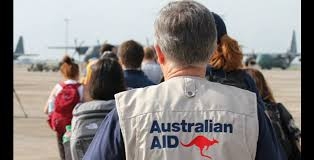By Sadhana Sen
Is the Pacific an aid-dependent region making endless requests for development assistance but with little care for how effectively and successfully this aid is used?
What should be done by Pacific governments, donors and other stakeholders to improve the Pacific’s status in the aid effectiveness tables? We currently rank at the bottom?
Do donors really care about how successfully their development dollars are used across the Pacific region, or is aid just soft diplomacy; a means to influence geopolitical maneuverings in the region?
Delegates to the Australasian Aid Conference (AAC2020) will look at the state of development in Australasia and in the Pacific and aid effectiveness when they meet in Canberra at the Crawford School of Public Policy at the Australian National University February 17-19. Researchers working on aid and international development policy will share their insights and promote partnerships to build the research community.
So what can the Pacific Islanders and those working in the region expect from the discussions?
The conference’s location and Australia’s position as the South Pacific’s biggest aid partner as well as the current Australian International Development Policy Review, means Australian aid will be front and centre of the discussions.
The aid effectiveness sessions are led by the Devpolicy Centre’s Dr Terence Wood who writes on Australian aid project effectiveness – what shapes it, and why is it worse in the Pacific?
There will be a launch of a mapping study looking at funding gaps, opportunities and trends for Pacific women and girls, led by Fiji’s Virisila Buadromo from Urgent Action Fund for Women’s Human Rights Asia and the Pacific and Michelle Reddy from the Fiji Women’s Fund.
A research project titled Pacific perspectives on the World will also be launched at the conference. Led by the Whitlam Institute and an outfit named Peacifica, it “analyses views of a diverse group of Pacific islanders from Fiji, Vanuatu, and the Solomon Islands on their countries’ and region’s future place in the world.” The researchers say they’ve sought Pacific peoples’ views on “the role that Australia can play as a partner in realising that future.”
Other sessions will look at: infrastructure investments and NGO-participation in this sector; gender and development case studies; child-focused aid; climate change; eliminating violence against women and girls; and women’s economic empowerment (which includes Solomon Islands’ Dr Alice Pollard, the founder of the West ‘Are’Are Rokotanikeni Association NGO.)
Several panels are centered around Australian aid to Indonesia. However any mention of West Papua or a look at the plight of the West Papua people under Indonesian rule is a glaring omission from the program.
With this year marking the twentieth anniversary of UN Security Council Resolution on Women, Peace, and Security (WPS,) a panel will discuss the updated WPS Index, revealing areas of progress, stagnation, and reversals, and current opportunities for advancing the WPS agenda in Asia and the Pacific. Case studies include getting women’s issues onto the table in Bougainville, timely given the recent referendum.
Labour Mobility is another focal area, with a keynote panel looking at lessons learned from the first year of Australia’s new Pacific Labour Scheme, and an overview of recent recruitment reforms in Papua New Guinea.
Overall there are 58 panels and 220 presenters. And no Canberra is not closed. It’s had a bad summer with fire, hail and smoke, but the smoke is reducing, the weather is improving, and the conference is in a modern, air-conditioned building, promises Convenor and Development Policy Centre Director, Stephen Howes.
The full program can be seen here
Sen is an independent Regional Development and Communications Consultant.
